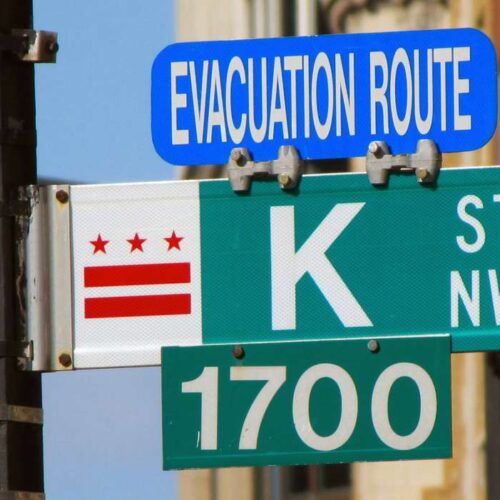Introduction
Congress’ fiscal cliff fiasco, a flurry of lame duck legislation and election-season politics drove some of the nation’s most powerful lobbying forces to double down on their governmental influence efforts late last year, newly filed reports show.
Such an uptick foreshadows what could be ever-more-aggressive lobbying on federal finances, taxation, energy and social issues like immigration and gun ownership as President Barack Obama enumerated in his inaugural address Monday.
The trend may end a prolonged lobbying spending slowdown largely prompted by Capitol Hill gridlock and a dearth of meaningful legislation receiving consideration during much of 2011 and 2012.
In all, about half of the year’s top 100 lobbying organizations spent more on lobbying in the fourth quarter of last year than in the third quarter. About half also showed an overall increase in spending for 2012, a Center for Public Integrity analysis of congressional disclosure reports and Center for Responsive Politics data indicates.
The U.S. Chamber of Commerce’s year-over-year lobbying spending skyrocketed more than 88 percent, from $66.4 million to more than $125 million, to easily lead all other organizations.
Prominent business and financial lobbies, meanwhile, rank among organizations that spent significantly more during the fourth quarter of 2012 than they did during the third quarter, including the National Association of Realtors ($15.4 million from $9.8 million), the Business Roundtable ($4.8 million from $4 million), JPMorgan Chase and Co. ($3.2 million from $1.4 million) the American Bankers Association ($2.1 million from $1.8 million) and Visa ($1.7 million from $1.1 million), records show.
For the Business Roundtable, the jump represents an “intensified effort” to influence fiscal cliff negotiations, permanent normalized trade relations with Russia and tax reform, said Tita Freeman, an organization spokesperson.
But percentage-wise, the greatest lobbying spending growth late in 2012 comes from companies representing a variety of industries aghast at the package of automatic tax increases and spending cuts that had been slated for implementation had Congress not struck a last-minute deal to avoid them.
They include information technology behemoth Oracle Corp. ($1.8 million during the 4th quarter from $640,000 during the 3rd quarter), energy giant Southern Co. ($5.1 million from $2.5 million), Duke Energy ($2.3 million from $1.3 million) and Dow Chemical ($2.6 million from $1.6 million), according to congressional records.
Defense contractors Northrop Grumman, Lockheed Martin, Raytheon Co. and General Dynamics also reported moderate increases from the third quarter to the fourth. These and other companies that rely on government contracts stood to potentially lose billions of dollars had automatic federal spending cuts been put in place at the end of 2012.
While not yet among the nation’s biggest-spending lobbying forces, the National Rifle Association and the affiliated NRA Institute for Legislative Action together fueled their 2012 lobbying efforts with about $3 million – more money than during any other single year.
The NRA’s lobbying comes as the association finds itself in the midst of a nationwide conversation, and looming political battle, over gun ownership restrictions following the December massacre of 26 people at a Connecticut elementary school.
The gun rights lobby also faces a host of new and moneyed lobbying opponents this year, most notably organizations led by former Rep. Gabrielle Giffords (D-Ariz.) and New York City Mayor Michael Bloomberg (I). Pro-gun advocates have historically and exponentially outspent gun control interests.
Facebook, for its part, posted its priciest quarter ever — $1.4 million in the fourth quarter — and passed the seven-figure threshold for the first time during a three-month period. The social media company, which didn’t invest a cent in federally reportable lobbying until 2009, spent nearly $4 million in 2012, or about three times the $1.35 million it spent in 2011, and shows no indication its slowing its rapid expansion into the political sphere.
Generally, federal legislation, congressional activities and regulatory action prompt most lobbying spending, although recent dollar-figure spikes are caused, in part, by national elections.
Take the U.S. Chamber of Commerce and the National Association of Realtors.
The two business organizations are among a small group of lobbies that opt to disclose their state- and grassroots-level lobbying (and sometimes political organizing) costs alongside their federally focused efforts.
The spending disclosures do not, however, appear to include the tens of millions of dollars collectively spent on directly attacking or supporting political candidates, primarily through television and radio advertisements, during the 2012 election.
“Our 2012 lobbying figures reflect that it was an election year, where the Chamber engaged in an unprecedented voter education campaign to educate the public about candidates’ positions on issues critical to free enterprise, such as health care, regulation, energy production and taxes,” Chamber spokeswoman Blair Latoff Holmes said.
The Realtors also engaged heavy political field organizing efforts, said Jamie Gregory, deputy chief lobbyist for the association, which reported $41.4 million in spending during 2012 in its federal lobbying reports.
That figure trailed only the Chamber and put it ahead of General Electric, the National Cable & Telecommunications Association, American Hospital Association, the Pharmaceutical Research & Manufacturers of America, Google, Northrop Grumman, AT&T and the American Medical Association among the nation’s top 10 lobbying spenders last year.
“Accordingly, we expect a drop in spending during 2013, and in 2014, expect it to go back up,” Gregory said.
Several corporations known to have donated money to Obama’s inauguration committee are also among top lobbying forces of 2012: AT&T spent $17.4 million on federally reportable lobbying last year, followed by Southern Co. ($15.6 million), FedEx Corp. ($11.9 million), Microsoft ($8.1 million), and Coca-Cola ($4.8 million), disclosures show.
Read more in Money and Democracy
Money and Democracy
Nonprofit spends big on politics despite IRS limitation
American Future Fund has conservative roots


Join the conversation
Show Comments